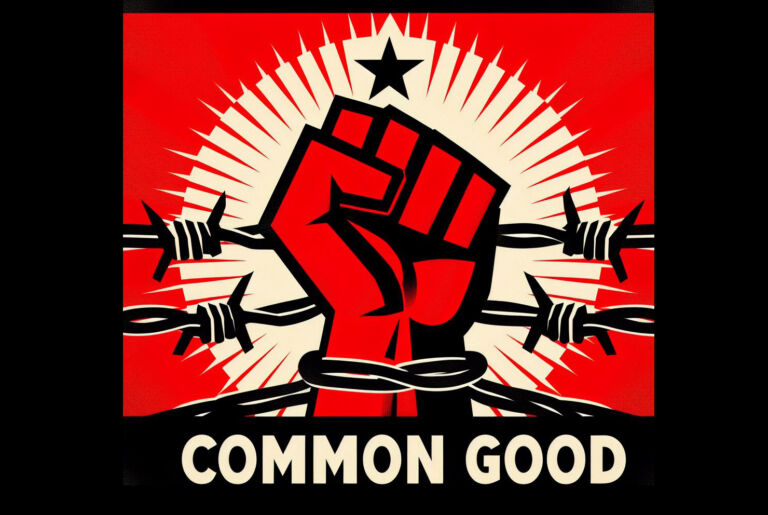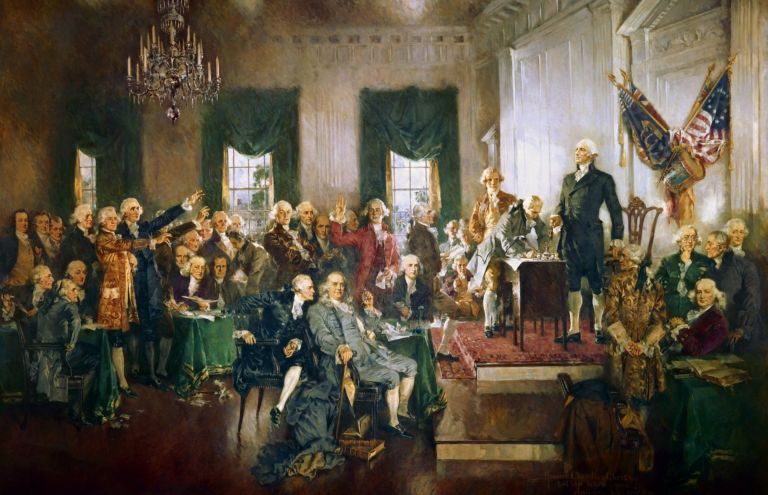- The primary goal of social justice is “equity”
- But the inherent diversity of individuals makes equitable outcomes impossible without imposing unequal treatment under the law
- Unequal treatment under the law is antithetical to a free society
The primary goal of “social justice” activism is an “equitable” allocation of resources among members of society.
In order to understand social justice, therefore, one must understand what they mean by “equity.” Equity refers to equality in outcomes and access to resources and implies that individuals should be treated differently in order to achieve that outcome-based equality.
This last part should immediately raise flags among those interested in liberty.
As Friedrich A. Hayek wrote in his 1960 book “The Constitution of Liberty,” “The great aim of the struggle for liberty has been equality before the law.” At once, we can see that the pursuit of equity is at odds with liberty.
Because of the inherently diverse nature of individuals, Hayek wrote, unequal outcomes are inevitable. The only way to equalize them is through unequal treatment.
“From the fact that people are very different it follows that, if we treat them equally, the result must be inequality in their actual position,” he observed. As such, “the only way to place them in an equal position would be to treat them differently.
“Equality before the law and material equality are therefore not only different but are in conflict with each other; and we can achieve either one or the other, but not both at the same time,” he concluded.
To the lumberjack, the surest tool to achieve “equity” in a forest of trees of varying heights is the chainsaw.
Progressives pursuing “equity” often argue that, free of societal factors like “systemic racism,” outcomes would be equalized among all people. To their minds the mere existence of unequal outcomes confirms the existence of such factors. But this perspective overlooks the fact that, as Hayek wrote, “individuals are very different from the outset.”
Indeed, “The boundless variety of human nature — the wide range of differences in individual capacity and potentialities — is one of the most distinctive facts about the human species,” Hayek added.
It is each human’s “unique set of attributes” that gives us a “dignity (we) could not otherwise possess,” according to Hayek.
And in today’s social justice movement obsessed with group identities, progressives try to apply their goal of equity among groupings of people by race, ethnicity, sex, etc.
Outcomes among racial, ethnic, and gender groups should be equalized, according to the plans of social justice warriors. If outcomes are not equal, the cause must be discrimination, and this discrimination serves as justification for unequal treatment among racial, ethnic, etc. groups.
As Thomas Sowell wrote in his book “Civil Rights: Rhetoric or Reality?,” one of the central premises of this narrative is “that statistical disparities in incomes, occupations, education, etc., represent moral inequities, and are caused by ‘society.’”
That assumption is based on the premise, as Sowell wrote, “that large statistical differences between groups do not usually arise and persist without discrimination.”
But what if such disparities do arise absent discrimination perpetrated by the “system”?
If that can be shown as the case, then the Left’s assumptions about statistical disparities “lose their validity as evidence,” Sowell noted.
Of course there is no basis to the belief that — absent racial discrimination — all income or resources would be equitably distributed among not only individuals but identity groups. Disparities among groups is the norm in all facets of life, Sowell explained.
“There are many decisions wholly within the discretion of those concerned, where discrimination by others is not a factor — the choice of television programs to watch, opinions to express to poll takers, or the age at which to marry, for example. All these show pronounced patterns that differ from group to group,” Sowell continued.
Ultimately, Sowell concluded, statistical disparities are normal and to be expected among people. “Statistical disparities extend into every aspect of human life,” he wrote, adding that “statistical disparities are commonplace among human beings.”
The progressive presumption of discrimination or “systemic racism” as the sole cause of inequities among various identity groups is detached from the reality of human diversity. Such a recognition severely undercuts their justification for unequal treatment by government to achieve their goal of equity.
Let’s pause here for a moment to absorb the irony and hypocrisy of those demanding that we “embrace diversity” being the same ones who insist we ignore human diversity and pretend that equality of results would be the natural state absent “institutional” factors like racism or sexism.
Moreover, pursuit of equity can cause severe societal damage and is a threat to human flourishing — especially among those progressives claim to be helping.
Equity doesn’t prop up the lowest achievers, raising them up to equal standards as the wealthiest and highest achievers. Instead, equity is most readily achieved by punishing or otherwise handicapping the highest achievers to bring everyone down to the lowest level.
To the lumberjack, the surest tool to achieve “equity” in a forest of trees of varying heights is the chainsaw.
To be sure, no amount of practice would enable me to beat LeBron James at basketball, but breaking both his kneecaps might give me a chance.
In pursuing equity, the world is deprived of the genius and innovation of society’s brightest minds or most creative artists. Society is poorer as a result. The poorest in society will be hurt the most, as conditions deteriorate to levels yet unseen.
Equity is sold by progressives as the ultimate endgame of “social justice.” But the pursuit of equity requires the violation of equality before the law, a principle that Hayek labeled the “great aim” of liberty.
A free society cannot tolerate unequal applications of justice and treatment by government, making equity a threat to liberty.


